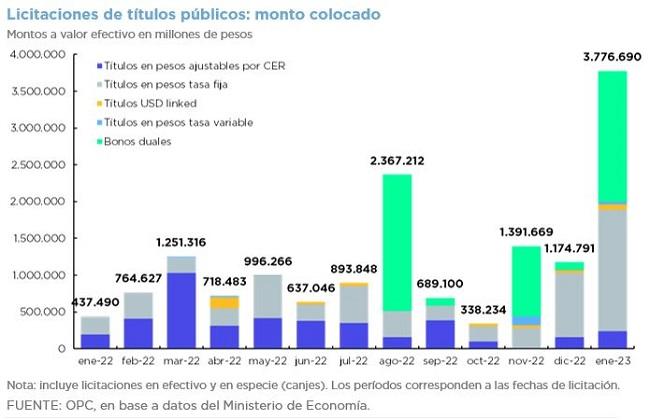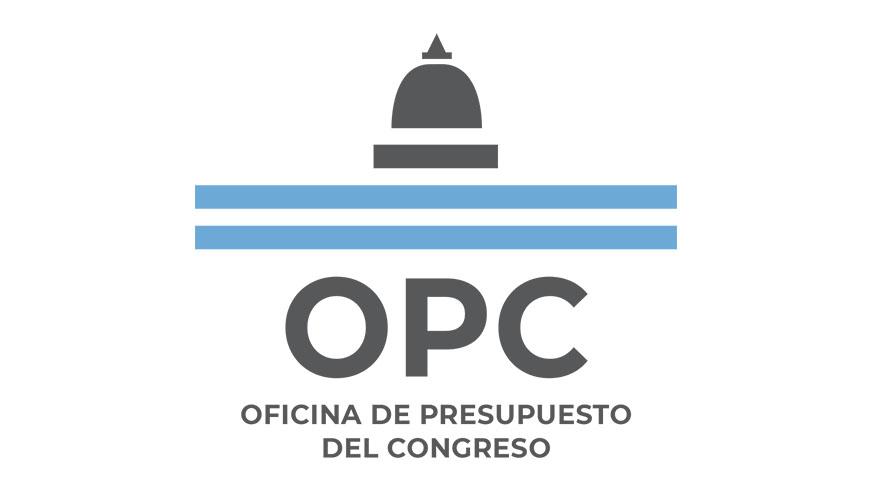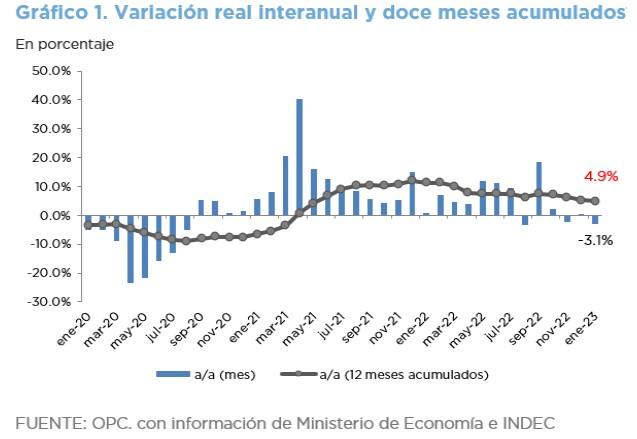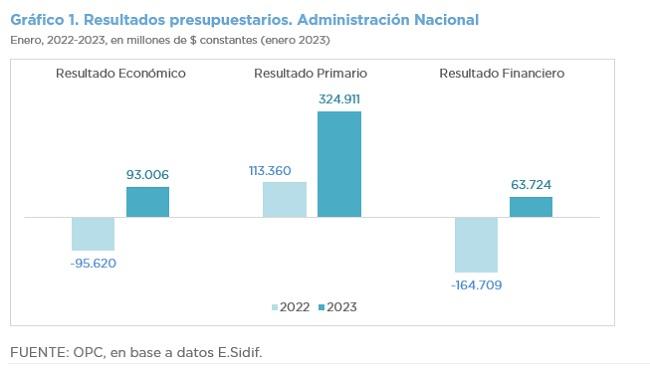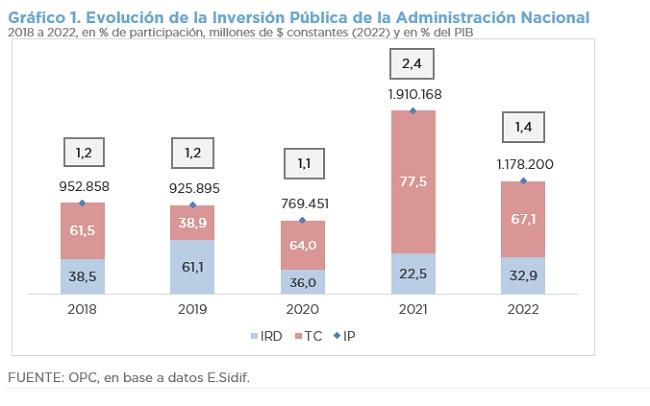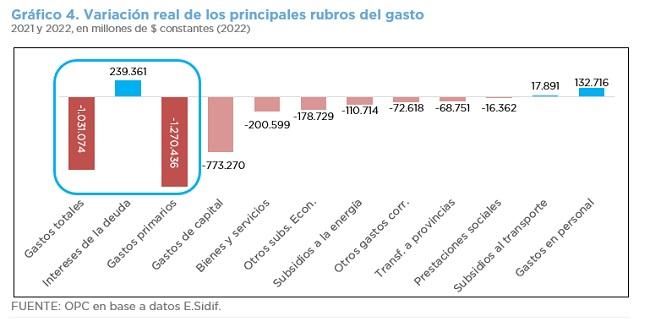Tax revenues amounted to ARS2,265.962 billion in January 2023, which implied a growth of 93.4% year-on-year (YoY). Adjusted for inflation, it decreased 3.1% YoY.
Among the tax type revenues, the increase in real terms in VAT, because of the higher economic activity, and in Wealth Tax, favored by higher compensations made from VAT, stand out. Income Tax decreased slightly, since in this tax, such compensations were lower.
Export Duties were reduced because of lower volumes reported in the foreign sales affidavits (DJVE), given the end of the validity of the exceptional value for the liquidation of foreign currency within the framework of the Export Increase Program (DNU 787/2022).
On the other hand, Social Security contributions increased with respect to January 2022.
